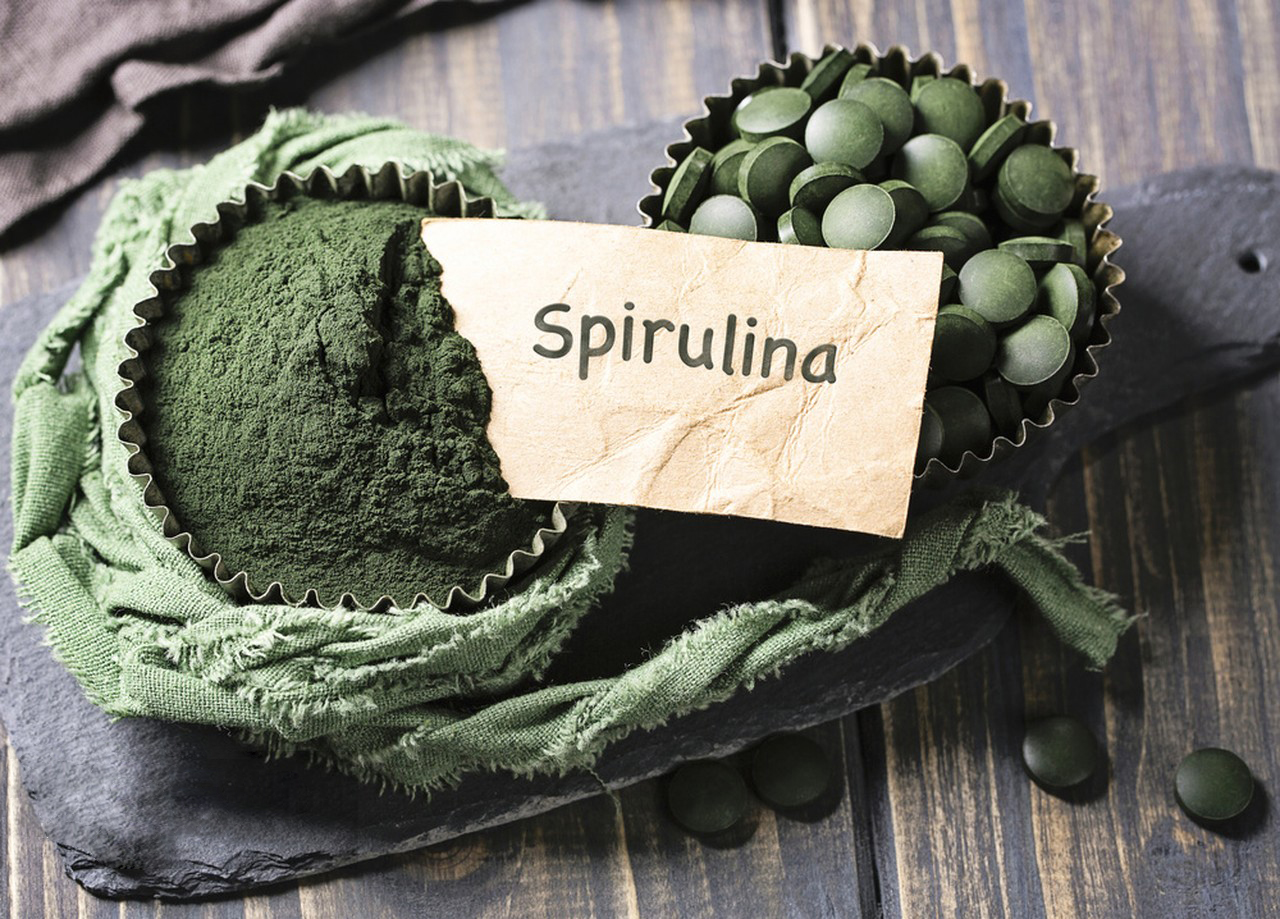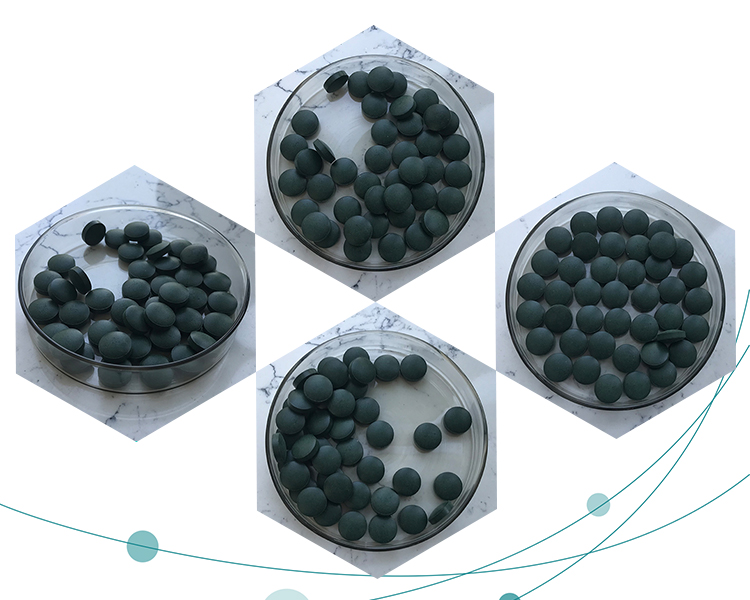Spirulina tablets are a popular dietary supplement made from spirulina, a type of blue-green algae that grows in both fresh and saltwater. Spirulina has been consumed for centuries due to its high nutritional content and potential health benefits. Here is a comprehensive overview of Spirulina tablets:
Nutritional Composition:
Protein: Spirulina is exceptionally rich in protein, containing all essential amino acids. It is often promoted as a plant-based protein source.
Vitamins: Spirulina contains various vitamins, including Vitamin A, Vitamin K, Vitamin B12, and Vitamin E.
Minerals: It is a good source of minerals like iron, calcium, magnesium, and potassium.
Essential Fatty Acids: Spirulina contains gamma-linolenic acid (GLA) and other essential fatty acids.
Antioxidants: Spirulina is rich in antioxidants, such as phycocyanin and beta-carotene, which help in combating oxidative stress.

Potential Health Benefits:
Boosts Immune System: Spirulina may enhance the immune system due to its antioxidant and anti-inflammatory properties.
Improves Energy Levels: Some people report feeling more energetic after taking spirulina tablets, likely due to its high protein content and iron.
Supports Heart Health: Spirulina may help in lowering bad cholesterol levels and triglycerides, thus promoting heart health.
Detoxification: It is believed to aid in detoxification by binding to heavy metals and toxins in the body.
Anticancer Properties: Some studies suggest that spirulina may have anti-cancer properties, though more research is needed to confirm this.
Dosage and Usage:
Dosage: The recommended dosage of spirulina tablets can vary depending on factors such as age, health status, and individual needs. Generally, a typical dosage ranges from 1 to 3 grams per day.
Form: Spirulina tablets come in various forms and dosages, so it’s essential to follow the manufacturer’s instructions or consult a healthcare professional.
Timing: Spirulina tablets can be taken with or without food, although some people prefer taking them with meals to aid digestion.
Safety and Side Effects:
Generally Recognized as Safe (GRAS): Spirulina is considered safe for most people when consumed in appropriate amounts.
Potential Side Effects: Some individuals may experience side effects such as digestive issues, allergic reactions, or mild headaches.
Interactions: Spirulina may interact with certain medications or supplements, so it’s advisable to consult a healthcare provider before adding it to your regimen, especially if you have underlying health conditions or are taking medications.

Quality and Source:
Quality Assurance: When purchasing spirulina tablets, it’s essential to choose a reputable brand that undergoes quality testing to ensure purity and potency.
Source: Spirulina can be sourced from various locations worldwide, but quality may vary depending on factors such as cultivation methods and environmental conditions.
Sustainability:
Environmental Impact: Spirulina cultivation is generally considered environmentally sustainable, as it requires minimal land and water compared to traditional agriculture.
Potential Contaminants: However, there may be concerns about contamination from pollutants in water sources, so sourcing spirulina from reputable suppliers is crucial.
Conclusion:
Spirulina tablets offer a convenient way to incorporate this nutrient-dense algae into your diet. While research suggests numerous potential health benefits, more studies are needed to fully understand its efficacy and mechanisms of action. As with any supplement, it’s essential to use spirulina tablets responsibly, following recommended dosages and consulting healthcare professionals when necessary.
